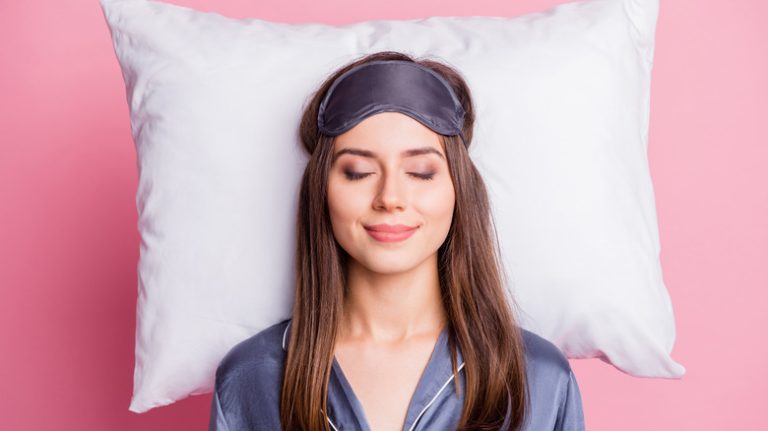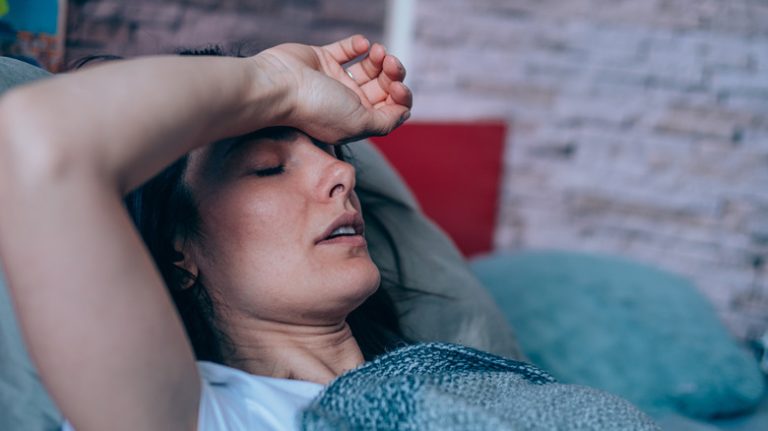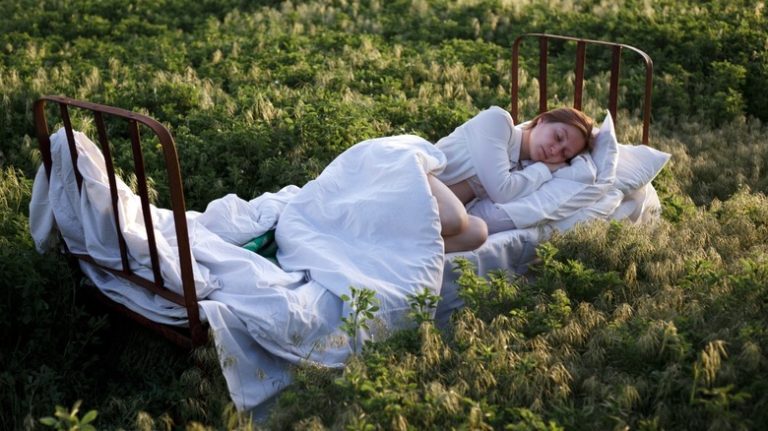Almost everyone has been through an all-nighter. Maybe your child wouldn’t sleep, or you had a deadline coming up. Or maybe you and your friends were having too much fun to let something like sleep bring the night to an end. Whatever the reason, we’ve gone from one morning to the next without a moment of rest in between.
Of course when you’re up all night to have fun, there is a good chance you’ve got the next day off to sleep off the exhaustion. And, hopefully, tired parents can get some rest while friends or relatives keep an eye on their child. But what about deadlines? What does an all-nighter do to your body when you stay up to finish a task that can’t be put off any longer?
The short answer is: nothing good. All-nighters may seem like a good idea on the surface, but they end up costing us more in the long run. Students — usually big fans of all-nighters — should be especially wary. A 2007 study from St. Lawrence University found that all-nighters were actually linked to lower grades, not higher.
Of course, grades aren’t the only thing to suffer. Our bodies, our appetites, and our self-control are all affected when we skip a night of sleep. A 2004 study funded by the National Institutes of Health found that sleep deprivation increases ghrelin — a hormone that controls hunger — while decreasing the satiety hormone leptin.
After an all-nighter, you may as well be drunk
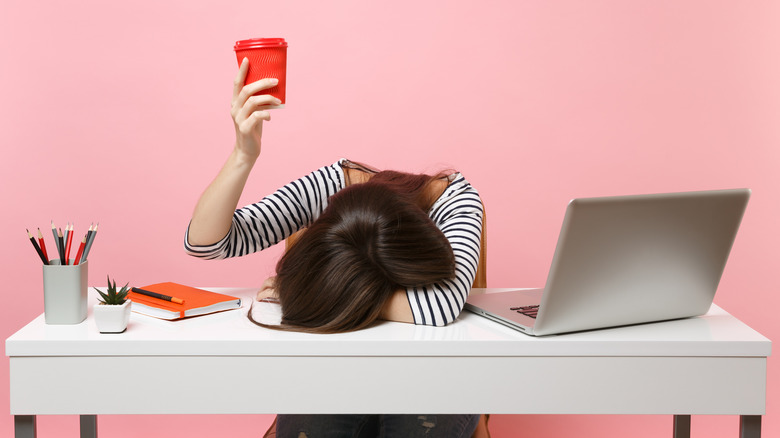
The National Institute for Occupational Safety and Health (NIOSH), run by the CDC, is no stranger to the effects of sleep deprivation on the human body. And pulling an all-nighter is a form of sleep deprivation. In fact, sleep scientists actually refer to it as “total sleep deprivation” because our bodies get no rest when we put them through all-nighters (via Progress in Brain Research).
Sleep deprivation carries some serious risks, all of which NIOSH lays out in a module designed to warn nurses about these risks, as well as strategies to avoid the worst of them. These risks include increased chances of infection from viruses like the flu because sleep deprivation suppresses the immune system. Sleep deprivation also damages cardiovascular health by increasing levels of cortisol (known as “the stress hormone”) and spiking activity in the sympathetic nervous system.
NIOSH even covers the physical impact of sleep deprivation, starting with a list of tragedies caused by sleep deprivation that includes the Challenger accident and the Exxon Valdez oil spill. Sleep deprivation reduces our ability to focus, aim, react to sudden changes, and judge distances. It’s a lot like being drunk. In fact, 17 hours without sleep is similar to having a blood alcohol content of (BAC) .05% and after 24 hours, it’s more like having a BAC of .10%
All-nighters just aren’t worth it. Your memory suffers, your body suffers, and your health suffers. The better bet is to put the task aside, get some sleep, and wake up earlier the next morning to finish what you couldn’t the night before. Your body will thank you.
All-nighters can lead to weight gain
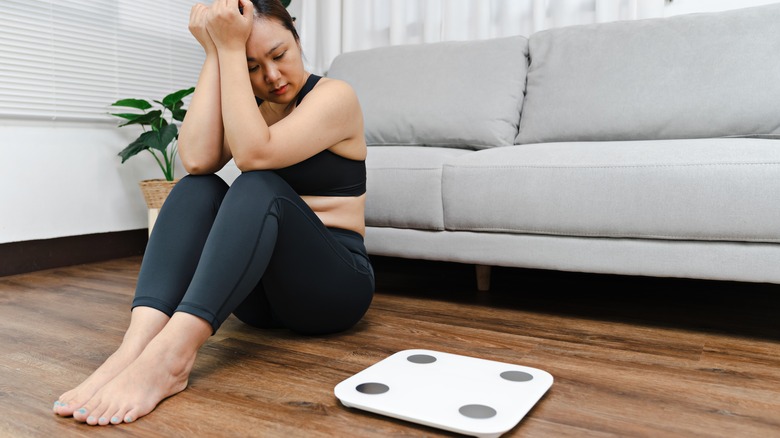
Need one more reason to get some sleep? As mentioned earlier, skimping on shuteye can throw your hormones out of balance. In particular, we’re talking about leptin and ghrelin, the hormones that regulate appetite. Sleep deprivation can hamper leptin production and increase ghrelin levels, leading to increased appetite, reports a 2004 study featured in PLOS Medicine. As a result, it may contribute to weight gain.
A more recent study published in JAMA Internal Medicine assessed the impact of sleep deprivation on 80 overweight adults who got less than six and a half hours of rest per night. Subjects who increased their sleep time for two weeks consumed fewer calories than the control group.
“It’s not so much that if you sleep, you will lose weight, but if you are sleep-deprived, meaning that you are not getting enough minutes of sleep or good quality sleep, your metabolism will not function properly,” explained clinical psychologist Dr. Michael J. Breus in an interview with WebMD.
Also note that sleep deprivation can result in tiredness and fatigue, making it difficult to keep up with your workouts and stay active (per Sleep Foundation). This aspect alone could lead to weight gain over time.
You may experience anxiety and panic attacks

Grustock/Shutterstock
Pulling an all-nighter could also take a toll on your mental health, suggests a 2024 study from the University of California at Berkeley. As it turns out, just one sleepless night can increase anxiety by a whopping 30% in healthy young people. Sleep deprivation affects the amygdala and other brain areas that regulate emotional behavior in ways that can make us anxious. Skimping on shuteye may also impact our mood, alertness, memory, and other aspects of mental health, according to clinical evidence published in the journal Sleep.
Health psychologist Julia Kogan says that anxiety and sleep deprivation go hand in hand. Lack of sleep can trigger anxiety — and the other way around. “The more activated the nervous system, the harder it is to fall asleep,” Dr. Kogan told PsychCentral. She also warns that sleep deprivation can activate the nervous system, which may result in panic attacks.
On top of that, you may experience memory problems after a sleepless night. “We discovered that starving the body of sleep also robs neurons of the ability to function properly. This leads to cognitive lapses in how we perceive and react to the world around us,” explains neurosurgeon Dr. Itzhak Fried (via the University of California, Los Angeles).
Skimping on sleep can hinder your workouts
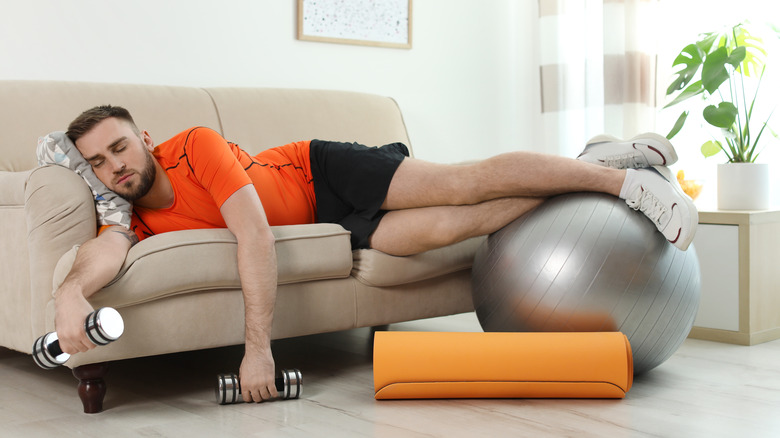
New Africa/Shutterstock
If you’re a regular gym-goer, think twice before pulling an all-nighter. A 2024 study conducted on endurance athletes found that sleep deprivation can hamper physical performance including finishing time, perceived exertion, and other aspects, reports the Journal of Sports Sciences. Moreover, it may increase pain sensitivity, according to clinical research published in PLoS One.
Many elite athletes prioritize sleep — and for good reason. NFL legend Larry Fitzgerald tries to get at least 10 hours of rest the night before a match. “I always get my rest and I think that’s one of the things that people don’t talk about often. Your body heals and repairs itself better than anything. Being able to get some sleep really does a great cause for your recovery and helps you wake up with a renewed, fresh mental and physical outlook,” he told HuffPost. Professional golf player Michelle Wie made a habit out of sleeping 10 to 12 hours per night, while former Jamaican sprinter Usain Bolt needs at least eight hours of rest to function at his peak (via HuffPost).
Sleeping less than eight hours per night can hamper recovery and nearly double the risk of injuries in athletes, reports a research paper featured in the British Journal of Sports Medicine. At the same time, it promotes inflammation and wreaks havoc on your immune system, which can further affect sports performance. Now imagine what an all-nighter does to your body!
Your productivity may suffer, too

Insta_photos/Shutterstock
You may think that working all night will help you get more done, but nothing could be further from the truth. Sleep deprivation can actually hamper productivity and work performance while increasing the risk of errors. Hult International Business School reports that more than 70% of managers experience poor concentration simply because they don’t get enough rest. Lack of sleep affects your decision-making and problem-solving skills, as well as your ability to multitask and communicate. Over time, it can harm your creativity, motivation, reaction time, and behavior.
Sleep-deprived individuals are also more likely to experience stress, anger, and mood changes, notes a 2024 review published in Cureus. These problems can interfere with their professional life, leading to poor communication and workplace conflict. What’s more, skimping on shuteye can impair attention and task accuracy, according to a 2024 review featured in the Annals of the New York Academy of Sciences. Thus, you may end up making costly mistakes and missing deadlines.
Unfortunately, it’s not always possible to avoid an all-nighter. Perhaps you’re behind on work or dealing with an emergency. Ideally, try to get more rest the day before and squeeze a short caffeine nap into your schedule (per Amerisleep). Most importantly, take the time to plan things out. Break down your goals into bite-sized chunks, and take short breaks every hour. Keep the lights bright, opt for energizing foods, and drink plenty of cold water. Avoid driving until you’ve had sufficient rest.

